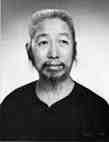Leuven University Press, 2016
Hardcover, 416 pages
€69.50
Cheng Man-ch'ing (Zheng Manqing) was a well-known artist in his twenties when he became a professor at the Shanghai Art College in the 1920s. He taught in its Traditional Painting Department (his aunt, Zhang Hongwei, a highly respected painter, also taught at the school).
A new book, The Modernization of Chinese Art: The Shanghai Art College, 1913-1937, by art historian Jane Zheng, covers the period of Cheng's tenure at the school before the outbreak of war.
The world of art was changing as rapidly as everything else was in China: the traditional master-disciple training was supplanted by school instruction; art was exhibited and sold in galleries rather than through patronage and connections; and artists were training for new occupations such as art education and commercial art (advertising, illustration, scenery). One particularly controversial arena was the adoption of Western styles of art and modes of instruction such as life drawing (the school gained noteriety for its "Nude Model incident"), and use of oil paints and other non-traditional media.
While Cheng Man-ch'ing is not a main subject of this fascinating book, through it one can get a better picture of the huge societal changes that gripped China and the nuances, politics, and personalities of the art world that dramatically affected Cheng's life.

